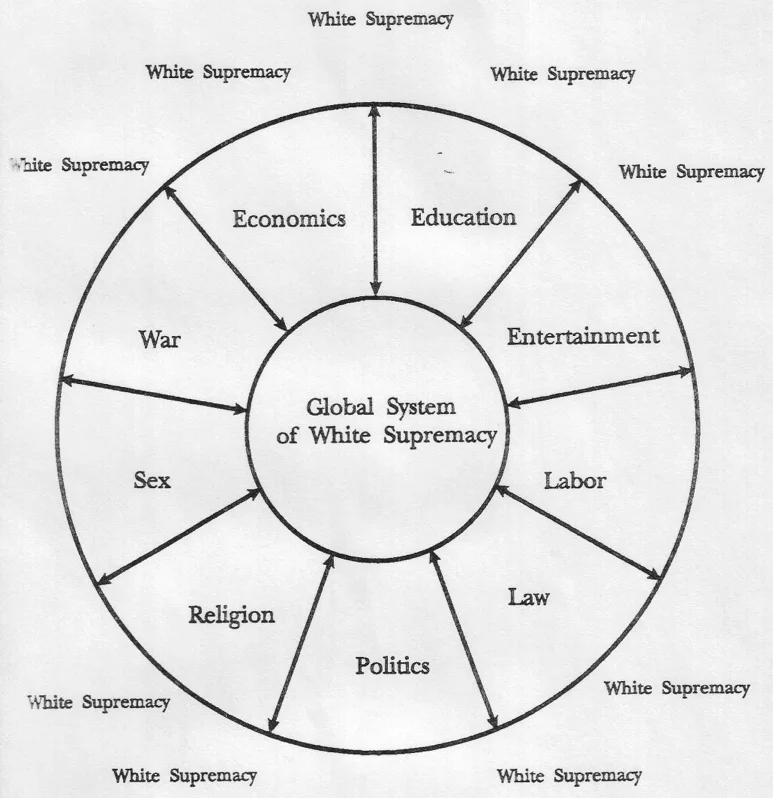Black People Seeking Pre-Trial Release Will Hit the High Score if "Risk Assessments" based on Education level, Background or Neighborhood are Considered Outside the Context of White Supremacy
/From [HERE] More than 100 civil rights, “digital justice” and community groups have joined in a statement expressing concerns about the expanding use of risk assessment instruments as a substitute for basing bail releases on money.
The organizations said Monday that risk assessment, which they termed “algorithmic-based decision-making,” may “worsen racial disparities and allow further incarceration.”
Many critics of the money bail system argue that risk assessment is a superior method of advising judges on whether to release a suspect pending disposition of a case. They say that the decision should be based more on science than on how much money the defendant can pay to gain release.
Risk assessment tools use data to forecast a person’s likelihood of appearance at future court dates and the risk of re-arrest.
Instead of risk assessment, the critical groups urge criminal justice leaders to “reform their systems to significantly reduce arrests, end money bail, severely restrict pretrial detention, implement robust due process protections, preserve the presumption of innocence, and eliminate racial inequity.”
The groups maintain that courts can ensure that people are not jailed unneccessarily without using risk assessment tools.
“America’s pretrial justice system is broken,” said Vanita Gupta, president of The Leadership Conference Education Fund. “If our goals are to shrink the justice system and end racial disparities, we can’t simply end money bail and replace it with risk assessments.”
Gupta headed the U.S. Justice Department’s civil rights division during the Obama administration.
The groups’ critical statement echoes concerns expressed in 2014 by then-Attorney General Eric Holder about the use of risk assessments by judges to help make sentencing decisions.
“By basing sentencing decisions on static factors and immutable characteristics – like the defendant’s education level, socioeconomic background, or neighborhood – they may exacerbate unwarranted and unjust disparities that are already far too common in our criminal justice system and in our society,” Holder said in a speech to the National Association of Criminal Defense Lawyers.
Among the leading advocates of risk assessment is the Texas-based Laura and John Arnold Foundation, which said this spring that it planned to expand access to its Public Safety Assessment (PSA) “dramatically” and broaden the level of research on its use and effectiveness.
Since a version of risk assessment developed by the foundation was launched in 2013, more than 600 jurisdictions have expressed interest in using it.
“This intense level of interest reflects the nationwide momentum favoring evidence-based pretrial decisions,” the foundation says, saying that the system is aimed at addressing “the inequity in the system that causes the poor to be jailed simply because they’re unable to make bail.”
As of April, the foundation said its assessment tool was used by about 40 cities, counties and states.
The foundation said that over the next five years, pretrial researchers will work with 10 diverse jurisdictions to receive training, technical expertise and implementation of pretrial risk assessments locally.
The advocacy group statement on Monday argued that because “police officers disproportionately arrest people of color, criminal justice data used for training the tools will perpetuate this correlation.”
The groups said the “main problem that has caused the mass incarceration of innocent people pretrial is the detention of individuals perceived as dangerous (‘preventive detention’). Though the Constitution requires that this practice be the rare and “carefully limited exception,” it has instead become the norm. Risk assessment tools exacerbate this issue by relying upon a prediction of future arrest as a proxy for so-called ‘danger.’ ”
Some developers of risk assessment tools have refused to make public the details of their design and operation.
Monday’s statement by critical groups declared that, “The design of pretrial risk assessment instruments must be public, not secret or proprietary.”
Among the groups signing the statement were the American Civil Liberties Union, the Drug Policy Alliance, the Leadership Conference on Civil and Human Rights, the NAACP, the National Employment Law Project, and the Prison Policy Initiative.






































































































































































































































































